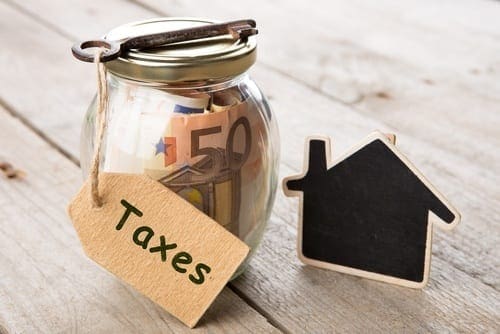
Real estate professionals often refer to taxation laws to maximize profits. According to bestrealestatedirectory.com, tax laws can be confusing to navigate if you’re a first-timer. You don’t want to be paying for taxes that you could have easily written off as a business expense. To help you realise the profits you deserve, here are some of the most important things you need to know about the tax benefits of real estate investing:
-
Deductions
There are a number of deductions that you can take advantage of when filing for our annual income tax, such as the following:
-
Mortgage Interest
The interest that you pay towards your mortgage can be deducted from your income tax return. To qualify for this deduction, you need to file Form 1908 or the Mortgage Interest Statement to the IRS. This form will merely show how much interest you’ve paid towards the mortgage lender. This is one of the most significant deductions that you can take advantage of as it does not only apply to primary loans, but also on your investment property loans or refinanced mortgages. A mortgage refinance allows you to replace your existing mortgage with a new one that has more favourable terms, such as a lower interest rate. You can visit here for some refinance tips.
-
Operating Expenses
Operating expense or more commonly called a business expense refers to the cost of maintaining your property. This cost also includes your operational cost for managing your real estate business. Types of these expenses are your internet and phone bills. You can also list the cost of your trips to the property as an expense. These expenses may look small, but over time they can help you save a lot of money. Check out how small business taxes can be managed.
-
Repairs and Improvements
Just like a business expense, anything you spend on repairs and improvement on your properties can be written off. Repairs refer to work made in ensuring your property remains in good condition. It could mean roof leak repairs, wall repainting, and other similar work. Improvements refer to work that improves the property value. This could apply to roof replacement, living room remodeling, or adding extra rooms. Both of these things can be easily deducted from your tax.
-
Depreciation
Depreciation refers to the natural wear-and-tear of your property as time goes by. A real estate investor can use the depreciation value of a property on a yearly basis to even further reduce tax liability.
Residential property has a depreciation of 27.5 years, and for commercial properties, it’s at 39 years. You should note that this depreciation only refers to the building or structure and not the land as land never loses its value.
Take, for example, 85% of a residential property that’s valued at 250,000 USD can be written off. The remaining 15% is usually the value of the land, and as mentioned above, a land never depreciates. 85% would translate to 212,500 USD, you divide that figure to 27.5 years, and you get a 7,727 USD yearly tax break for almost 30 years.
However, you have to make sure that your property meets the following requirement as set by the IRS:
- You are the property owner.
- The property is being used as an incoming-producing property or for personal business use.
- The property isn’t abandoned and being actively used and loses value from natural occurrences.
- The property should last for more than a year.
These requirements must all be met before the IRS sees your property as depreciable.
-
Like-Kind Exchange
A like-kind exchange is also referred to as 1031 exchange by real estate professionals. This refers to a payment deferment strategy made by savvy property investors when they sell a property. It’s a powerful technique that if done correctly can significantly increase your profits as an investor and postpone tax payments.
Whenever you sell a property, you will be required by the law to pay taxes for the capital gains you’ve incurred. Capital gains refer to the profits you’ve made from selling off your property. However, section 1031 of the Internal Revenue Code says that there can be an exception.
You will be allowed by the IRS to postpone paying taxes when you immediately reinvest your capital gains to purchase another similar property. It’s a win-win scenario, and more importantly, you get to enjoy a tax-free property income.
To qualify for this, you need to observe the following requirements:
-
Like-kind requirement
The new property should be of equal value or higher of that old property. It should also be in the same class or nature which means you can’t sell a commercial property to purchase a couple of houses.
-
45-day requirement
You need to have found a replacement property within 45 days of selling your old property, and it should be identified in official documents. You will also only have up to 180 days to close the deal on the new property after successfully selling the old property.
-
Intermediary requirement
There should be an intermediary between the two sellers of the property. Both sellers will not be able to touch the money until the purchase is complete. The intermediary should not be a family member and should not have done business with you in the past two years.
Conclusion
Tax benefits are only one of the many factors why the real estate market is a lucrative investment opportunity. These are just some of the most common tax benefits you can enjoy. However, you should always proceed with caution and refer to a lawyer before writing off anything. You don’t want to be risking your profits by paying off fines and penalties.

Be the first to comment